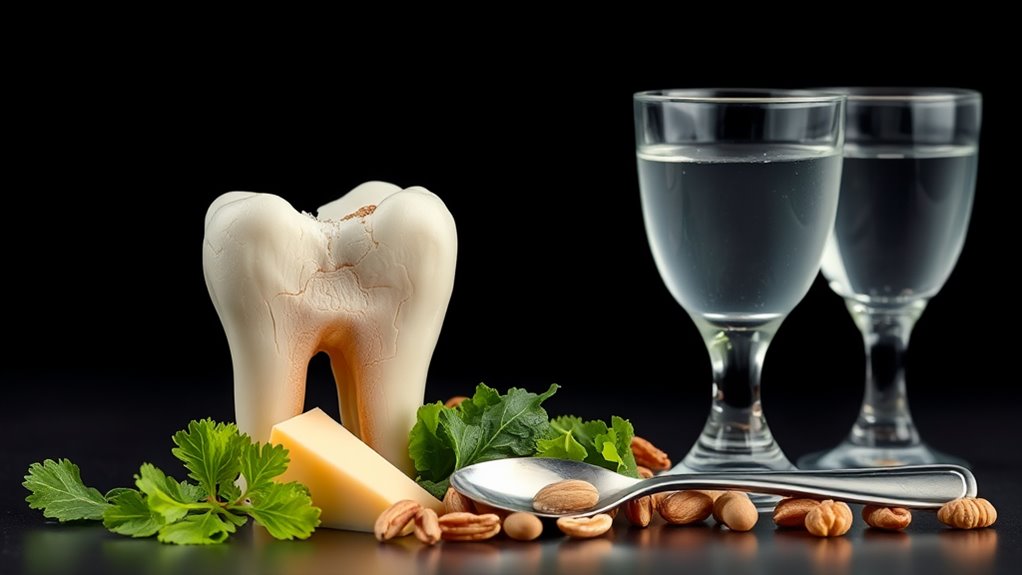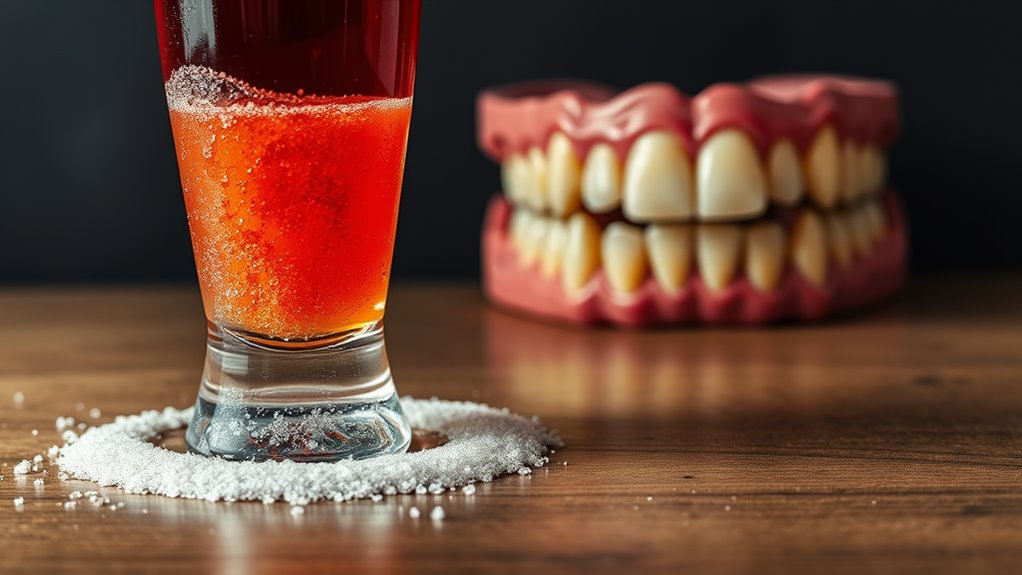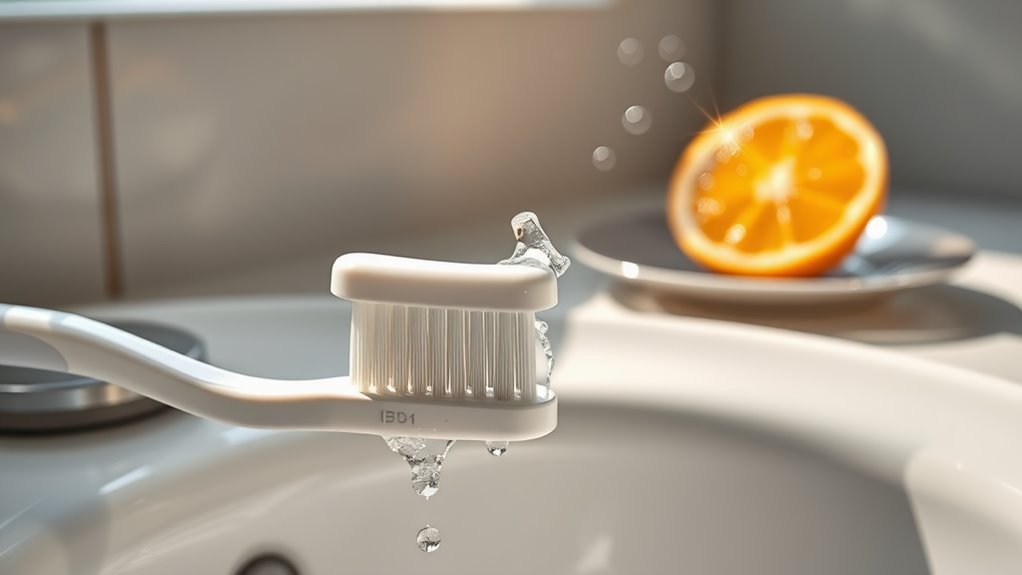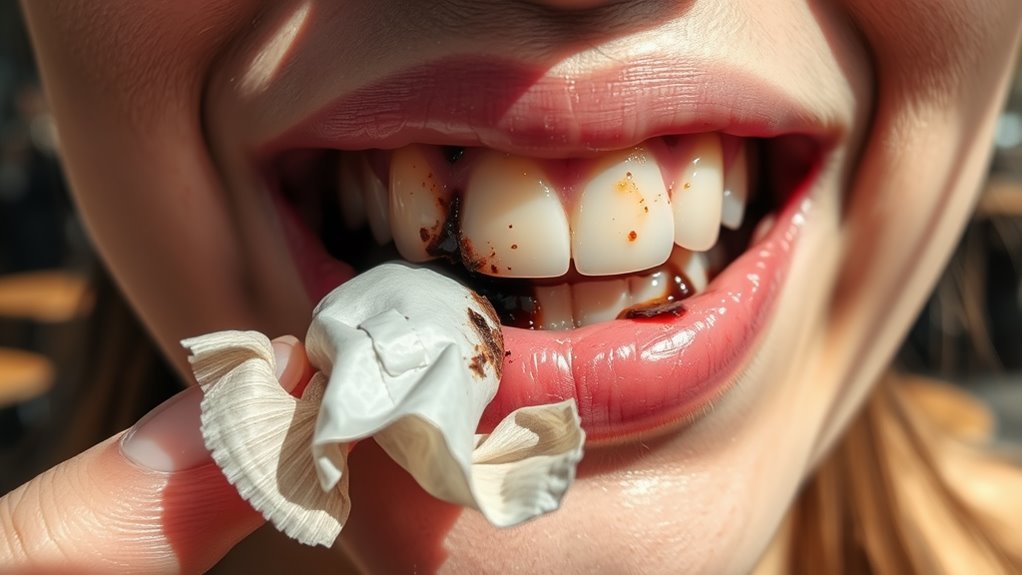Why Your Teeth Are Weak (And How to Fix Them Naturally!)
Your teeth may be weak due to poor mineral absorption, chronic dry mouth, grinding, or acidic foods wearing down your enamel. You’ll notice signs like sensitivity to hot and cold, rough texture, and frequent pain. To strengthen teeth naturally, focus on calcium-rich foods, vitamins D and K2, and protective habits like oil pulling and salt water rinses. Making simple changes to your daily routine can transform your dental health from the inside out.
Common Signs Your Teeth Are Becoming Weaker
When your teeth start to weaken, you’ll likely notice several warning signs that shouldn’t be ignored. You might experience increased sensitivity to hot, cold, or sweet foods, and your teeth may feel rough or chalky.
Yellow or transparent edges along your teeth can indicate enamel erosion, while frequent toothaches suggest deeper structural problems.
You may also notice your teeth becoming more prone to chips and cracks, even from eating relatively soft foods. White spots appearing on your tooth surfaces often signal mineral loss and early decay.
If your teeth look shorter or more worn down than before, it’s likely due to weakening enamel. Additionally, you might find yourself dealing with recurring cavities despite maintaining regular oral hygiene, which points to underlying tooth weakness.
The Hidden Causes Behind Tooth Weakness
Understanding why your teeth become weak leads to better prevention and treatment. Several hidden factors can contribute to tooth weakness that you mightn’t expect.
Poor mineral absorption from dietary deficiencies can prevent your teeth from remineralizing properly. Chronic dry mouth reduces protective saliva, leaving teeth vulnerable to decay. Grinding your teeth at night slowly wears down enamel, while acidic foods and drinks quietly erode tooth structure.
Medical conditions like diabetes and autoimmune disorders can also impact tooth strength without obvious signs. Some medications decrease saliva production or alter your body’s calcium absorption.
Even seemingly harmless habits like brushing too hard or using abrasive toothpaste can gradually weaken your tooth structure. Hormonal changes during pregnancy or menopause may affect tooth density as well.
Essential Nutrients for Strong and Healthy Teeth
Maintaining strong teeth requires a foundation of essential nutrients working together in your body. Calcium acts as the primary building block, but you’ll need vitamin D to help your body absorb it effectively.
Phosphorus works with calcium to strengthen your tooth enamel, while vitamin K2 ensures proper calcium distribution to your teeth.
You can’t forget about vitamin C, which supports healthy gum tissue and helps prevent periodontal disease.
Magnesium plays a crucial role in calcium absorption and enamel formation. To protect against tooth decay, you’ll benefit from vitamin A, which helps produce tooth-strengthening saliva.
Getting enough B vitamins, particularly B12, supports overall oral health by reducing inflammation and supporting tissue repair in your mouth.
Natural Remedies to Strengthen Your Teeth
Several powerful natural remedies can help strengthen your teeth without relying on commercial products.
Start oil pulling with coconut oil for 15-20 minutes daily to reduce harmful bacteria and mineralize your teeth. Rinse your mouth with sea salt water twice daily to alkalize and remineralize tooth enamel.
Apply green tea as a mouth rinse to fight cavities and strengthen teeth structure.
You can also chew on crunchy vegetables like carrots and celery to naturally clean your teeth and stimulate saliva production.
Try making a paste with crushed eggshells and coconut oil to apply directly to your teeth for added calcium.
Don’t forget to incorporate xylitol-containing foods, which help prevent tooth decay by reducing acid-producing bacteria in your mouth.
Daily Habits That Protect Your Dental Health
To protect your dental health, you’ll need to develop consistent daily habits that go beyond basic brushing.
Start by flossing before bed to remove trapped food particles and plaque between teeth. Rinse with water after meals when you can’t brush, and limit sugary drinks and acidic foods that erode enamel.
Keep a firm-bristled toothbrush at work for midday cleaning, and chew sugar-free gum containing xylitol after lunch.
Stay hydrated throughout the day to maintain healthy saliva production, which naturally cleanses your teeth. Before sleep, avoid eating and drinking anything except water.
Consider oil pulling with coconut oil in the morning to reduce harmful bacteria, and remember to replace your toothbrush every three months for optimal cleaning power.
Creating Your Personalized Tooth Care Routine
Building an effective dental care routine starts with understanding your unique oral health needs. Take note of any recurring issues like sensitivity, bleeding gums, or frequent cavities.
Then, work with your dentist to develop a targeted approach that addresses these specific concerns.
-
Start your morning by oil pulling with coconut oil for 15 minutes, followed by tongue scraping and brushing with natural toothpaste.
-
After each meal, rinse thoroughly with water and wait 30 minutes before brushing to protect your enamel.
-
End your day with thorough flossing, brushing for two full minutes, and using an alcohol-free mouthwash.
Remember to adjust your routine based on how your teeth respond.
You’ll know you’ve found the right combination when your teeth feel clean throughout the day and dental visits show improvement.




